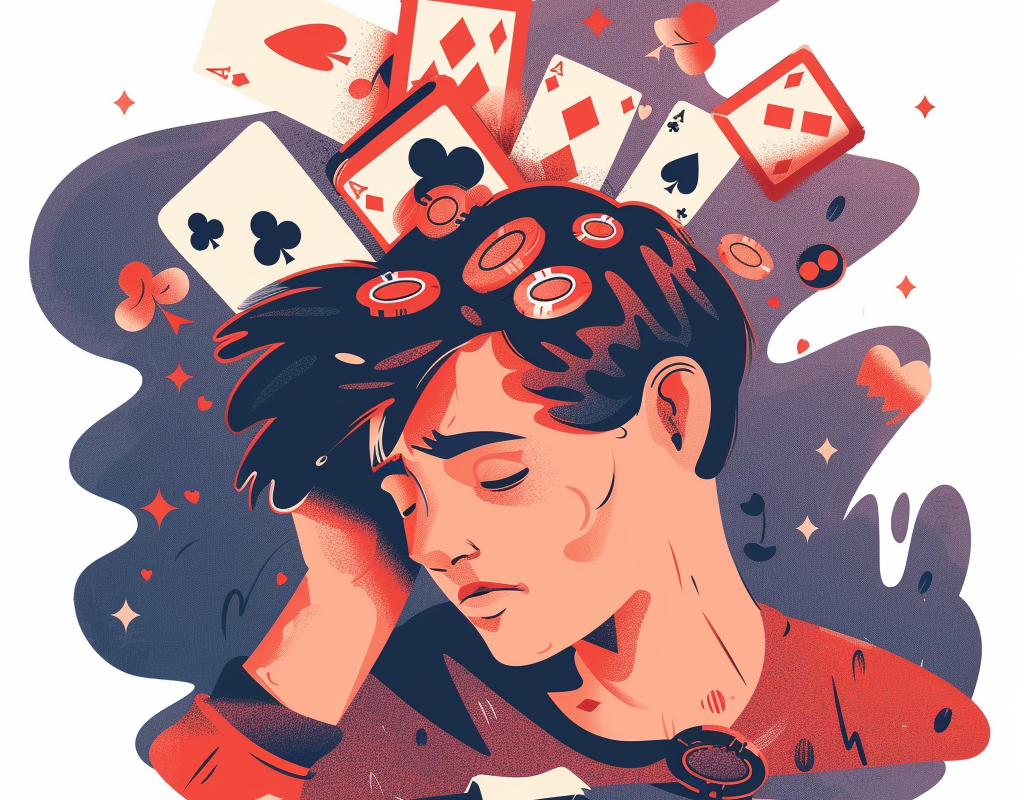Understanding Betting and Gambling
Gambling and sports betting are common forms of entertainment that can offer people a temporary rush of adrenaline and excitement. These activities include various forms such as casinos, online betting, lotteries, card games and bookmakers. They provide players with the opportunity to win significant amounts of money, which attracts people of all ages and walks of life. It is important to understand that despite the potential gains, most participants lose more than they win in the long run.
The main factor that attracts people to gambling is the opportunity to win big with minimal effort. However, in reality, casinos and bookmakers are structured to generate stable profits, which results in many players losing out. Gambling establishments use various psychological techniques to retain players and encourage them to make further bets. Awareness of these aspects can help people make more informed decisions about their gambling participation.
Psychological consequences of gambling
The psychological consequences of gambling can be significant and long-lasting. Chronic gambling can lead to the development of gambling addiction, which is characterized by an uncontrollable urge to gamble despite negative consequences. This condition can cause serious psychological problems such as depression, anxiety, chronic stress and burnout. People suffering from addiction may feel hopeless, losing interest in other activities and socialization.
Gamblers suffering from addiction often feel guilty and ashamed about their behavior, which can worsen their psychological state. They may begin to isolate themselves from friends and family, hiding their problems and deepening their emotional and psychological loneliness. As a result, gambling addiction can destroy relationships and impair quality of life, leading to problems in personal and professional spheres. Recognizing and seeking help early can greatly improve your chances of recovery.
Risk factors for mental health
There are several risk factors that may contribute to the development of mental health problems due to gambling. These include genetic predisposition, the presence of mental illness, stressful life situations and social isolation. Research shows that people with a family history of addiction have a higher risk of developing similar problems. This is due to both genetic factors and the influence of the environment in which they grew up.
Additionally, having pre-existing mental health conditions such as depression, anxiety disorders, or bipolar disorder can significantly increase your risk of developing a gambling addiction. Stressful events such as job loss, divorce or the death of a loved one can also encourage a person to seek solace in gambling, which in turn can lead to poor mental health. Understanding these risk factors can help develop prevention and early intervention strategies.
Signs and symptoms of gambling problems
Recognizing the signs and symptoms of problem gambling is a key step to overcoming it. In the early stages of addiction, a person may frequently think about betting and gambling, plan the next game, and feel a strong desire to gamble. Such thoughts can become intrusive, leading to poor concentration. and ability to perform daily tasks. As addiction develops, the player begins to have difficulty controlling his actions and begins to spend more and more time and money on games.
Serious symptoms include financial problems such as accumulating debt and inability to pay bills, problems at work or school due to absences and decreased productivity, and conflicts in personal relationships. The player may begin to lie to loved ones about his activities, hiding the extent of his problems, and even commit illegal actions to obtain funds for bets. These signs indicate the need for urgent professional help to prevent further negative consequences.
Addiction Prevention and Management Strategies
Prevention and management of gambling addiction requires a comprehensive approach. One of the key methods of prevention is it is raising awareness of the risks and consequences of gambling. Educational programs and campaigns can help people better understand the potential dangers and develop healthy habits. It is important to start awareness-raising early, especially among young people, to prevent the development of addictive behavior.
For those who have already encountered a problem, it is important to seek help from specialists. Psychotherapy, including cognitive behavioral therapy (CBT), can be effective in treating addiction. CBT helps people recognize and change harmful thought and behavior patterns. Support from family and friends also plays an important role in the recovery process. In addition, there are self-help groups, such as Gamblers Anonymous, that provide support and guidance to people seeking to overcome their addiction. Combining these approaches can significantly increase the chances of successful recovery.
Resources and support for those with gambling problems
Gambling problems can seriously impair quality of life, but there are resources and supportthat can help cope with this addiction. It is important to understand that help is available and that seeking it is the first step to recovery.
- Contact a professional psychologist or psychotherapist who specializes in addictions. They may offer treatments, such as cognitive behavioral therapy, that help change harmful behavior patterns.
- Join support groups such as Gamblers Anonymous. These groups provide a safe space to share experiences and support from people going through similar experiences.
- Seek out informational resources, such as books and online materials, that can help you better understand your addiction and how to cope with it.
- Seek financial counseling if you are facing serious money problems due to gambling. Financial advisors can help you develop a debt management plan and regain financial stability.
- Talk to your family and friends about your problem. Support from family and friends can be invaluable on your road to recovery. Don’t be afraid to ask for help and share your experiences.
Remember that fighting addiction is a long process and it is important to be patient with yourself. Find the right resources and support, and don’t be afraid to take the first step towards a healthy, happy gambling-free life.
Questions and answers
Answer 1: Major forms of gambling and betting include casinos, online betting, lotteries and card games.
Answer 2: Gambling can lead to gambling addiction, depression, anxiety and stress.
Answer 3: Genetics, mental illness, stressful life events, and social isolation may increase the risk of addiction.
Answer 4: Frequent thoughts about bets, difficulties with control, financial problems, problems at work or school, conflicts in personal relationships, and lying to loved ones.
Answer 5: Educational programs, psychotherapy, support from family and friends, self-help groups, and risk awareness.




